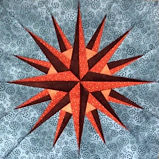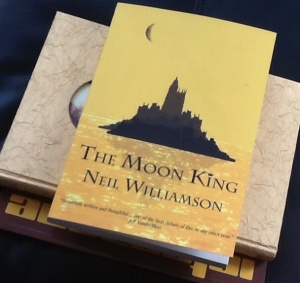Des Lewis will be 77 years old on 18 January 2025
Those who have read these episodic brainstorming reviews of mine must know they are very personal — rough-shod and spontaneous. Synchronicity and anagram mixed. I know they are not professional, never potentially publishable other than in the madness of my head, but I do hope they show grains of dark truth and cosmic panache.

These Des Lewis Gestalt Real-Time Reviews were founded in 2008.

‘What’s the loveliest word in the English language, officer? In the sound it makes in your mouth, in the shape it makes on the page? What do you think? Well now, I’ll tell you: E-L-B-O-W. Elbow.’ — THE SINGING DETECTIVE

“How shall a man find his way unless he lose it?” — Walter de la Mare

To any current genre author I have reviewed before — if you have a new story recently published or soon to be published in a collection or anthology, you may have a review by me of the story that also showcases where it is published. See HERE. (This is because I am no longer well enough to review as many books as I once did.)
Fresh Fictions, free to read HERE.
No AI input in preparation of my texts whatsoever.
THE NEW NONSCENIC
Photos here: https://conezero.wordpress.com/2024/02/24/d-f-lewis-recent-photos-1/

Pages 5 – 13
“Pieces of recent history resurfaced in his bruised brain like stormy flotsam.”
I have only read the first chapter so far, but I am already enthralled while being woken to this book. Waking up to find oneself treated like royalty after a drunken occasion in a so enticingly expressed world (appealing to an already awake reader’s sense of textured SF or Fantasy) where the changing fullness and darkness of a moon seems to pervade it – astrologically? (I’ve long been interested in astrology’s planetary harmonics and their synchronous tides in tune with our lives, rather than their cause-and-effect but here I may be altered back toward cause-and-effect? We may eventually see.)
This is a substantial work, just by judging it as a handleable object of pages and text and ‘look’ of that text by riffling through it. I relish the prospect of savouring it, being imbued by its ‘world’. I therefore intend to take it slowly, using it as an accompanying ‘moon’ or internet ‘cloud’, a backdrop to my other more snappy book reviews over a longish period. But sometimes intentions do go awry…
“She understood the inherent fragility of art.”
I have now read the second chapter. I do not intend to real-time review such short sections of text in future, but as I get bedded into the book, I may do so at first. Nor do I intend, in future, to adumbrate the plot (for fear of spoilers), but merely my reactions to it. Here, a different character, Lottie, a jobbing artist, one, I sense, feistily full of sexual as well as creative life, with a self-conscious fringe sometimes used to hide an ‘imperfection’ of one of her eyes, in a city that I am already getting a feel for. I’m also already getting a feel for the intriguing (dynastic?) effects of the moon, for example, a cross between Foolishness and Fullishness, and the more dangerous Dark, and the time of day told by measurements of Wane. Here, I must point out a mention of a Promise Centre in this city that has just been reported to Lottie to have suffered a fire, the very one she happened to be visiting next. I’m not yet sure what such a centre actually is, but there was immediately brought to my mind the disastrous fire yesterday at a listed Glasgow art school building… Art is Promise, after all.
I have just rediscovered here the author’s blog about my first review of his work. I hope I can still do it five years later! (I think that mention by him was the first coining of the expression ‘real-time reviewing’.)
Pages 23 – 46
“There were said to be one hundred and one ways into the Lunane’s Palace. Mortlock had already discovered a dozen, not including the main entrance.”
…shades of Andrew Mitchell and the Plebgate? Seriously (seriously?), this book is severely dragging me into it making me believe I am someone else, and I wonder, without exaggeration, why it’s not top of all the reading lists (perhaps it is), with its crystalline prose, its entrancing ethos and genius loci being built up before my very eyes, as I visualise the city like some cities I know in Britain today, the luck monkeys, the ‘going to the crabs’, within three streams of narration, so far, and each stream’s main character developing, beneath the moon whose effects waver between synchronicity and cause-and-effect, it seems to me so far, and a biography being written minute by minute whenever I do something (“he just wrote ‘whenever I do something'”).
I am agog: a heady mixture so far of Peake, Priest, Dickens but something quite other, too. So compelling, I shall find it difficult to maintain a slow pace through this book in tune to a slow moon as a pervasive ‘cloud’ absorbing what I do and preserving it, as I anticipated from the start of my review. (“He just wrote that he shall find it difficult to maintain a slow pace through this book…”) My biographer hopes I shall succeed, anyway. Or he will make sure I do?
Seriously impressed.
Pages 47 – 70
“She always said that he was oblivious to the world when his head was in a book.”
The main thing to know is that I am really enjoying this book – almost too much. It is a very clever book and it is making me even cleverer than I actually happen to be in order to help me fully appreciate it (but not yet clever enough to crack its mysteries) while seeming to single me out for such special treatment so that I can help with its own mechanics from within.
I sense this is the first work I have ever submitted to real-time reviewing methods that is not really suitable or susceptible to such methods – and I fear such methods will prove counter-productive, since I dare not further adumbrate its plot, however lightly, for fear of the normal sort of spoilers that reviewers usually need to avoid to preserve the full reading experience for readers who have not yet caught up to where the reviewer has reached. In addition, it feels as if the moon’s active cause-and-effect process or its passive synchronous ‘as above, so below’ process makes it impossible for me to impart to you what is happening, as I am actually part of those processes.
Meanwhile, the characterisations, the various ambiences and ‘politics’ of the Glassholme genius loci, forming the ‘continuity’ of the fiction, still promise to make this an entrancing read, as it already is.
Pages 71 – 98
“He thought he’d covered up the blackouts,…”
The machinations (inanimate as well as animate susceptibilities to the slowly passing moods of the moon, moods that the moon gives and the moods that the moon absorbs, I guess, and I wonder if as a reader I am similarly susceptible to the same moods (their time) or different ones (my time) while I watch characters fight back against memory loss or to establish what they did to each other during certain of the moon’s moods upon this island city) continue.
I think I know I am getting to know the various characters better and better, and the Lunane, as a sort of Popemobile (my word, not the book’s), regularly has the duty of dealing with Petitioners …
But there is a lot more going on than that! And I am now wonderfully lost in this world, lost for good.
Pages 99 – 108
“The smell of Dark.”
My head is in an orrery.
The machinations continue. Meanwhile, I feel compelled to shorten the phases of my real-time review again. I wonder if I know more than the book itself in one respect and, in another respect, the book knows more than me, both the book and myself remaining influenced by the Moon and its Machine in their different phases? My one-upmanship is that there are three spheres of mutuality, one sphere unknown to the book I am reading, i.e. the synchronous one, as-above-so-below, Jungian — and another sphere known to both the book and myself, i.e. the Moon’s influence as cause-and-effect on both of us (if not in the same rhythm on both of us). The book’s one-upmanship is that there is a third sphere (one I hadn’t realised until today), another but opposite version of cause-and-effect, i.e. from both of us upon the Moon, via the Machine?
This is perhaps in parallel to something else I noticed earlier but forgot to mention in this review, i.e. that the biographer’s instantaneous written reportage in arrears is to be seen in conjunction with the voice that answers in advance the petitioners on behalf of the Lunane.
Pages 109 – 132
“Cleaning up after Dark was a colossal undertaking.”
…and a ‘therapeutic’ one, it seems, an undertaking as self-constructive as real-time reviewing itself, as book-constructive as each dreamcatcher triangulation. Yet in the menstrual residues of this book’s wane into the culmination of Dark, I sensed a guilty or paranoiac personal sense of having diverted something beyond its rightful triangulation in the book’s own lunar orbit, or of having even colluded with its own sense of ‘eclipse’… The danger of such real-time reviewing.
But as the book now begins its waxing, I feel a genuine uplifting urge to explain that this my review inevitably needs, for reasons of space or spoiler, to omit description of its deepening characterisations within an equally deepening, delightfully puzzling ‘sense of place’, including its various plot turns, its crime fiction aura as well as its SF one. Make no mistake, this is a book that is fast becoming a great one in my eyes. I trust it continues to do so, in spite of those like myself working on its periphery.
I keep expecting a posset pot to turn up, but so far only teapots….
This Review will now continue in the comment stream HERE
Alternatively continuation accessible here: http://weirdmonger.livejournal.com/293807.html
This Review will now continue in the comment stream HERE
I am going to have to start over with this review since either the book or the review has not really grabbed enough of my interest to try and follow one or both of said sets of words.
Reblogged this on THE DREAMCATCHER OF BOOKS: Gestalt Real-Time Reviews.
Pingback: King and Queen of Souls | The Des Lewis Gestalt Real-Time Reviews